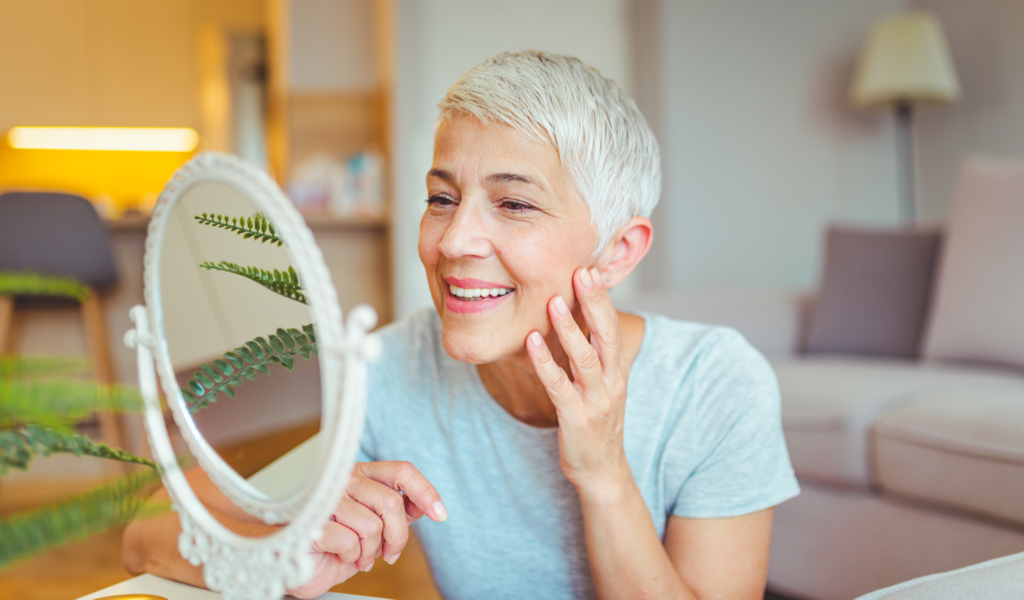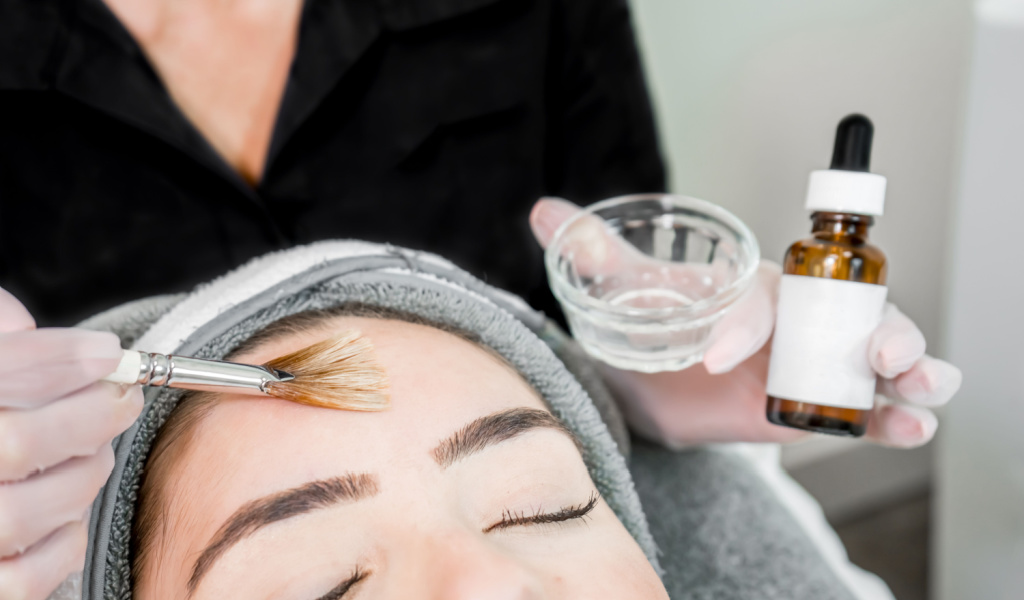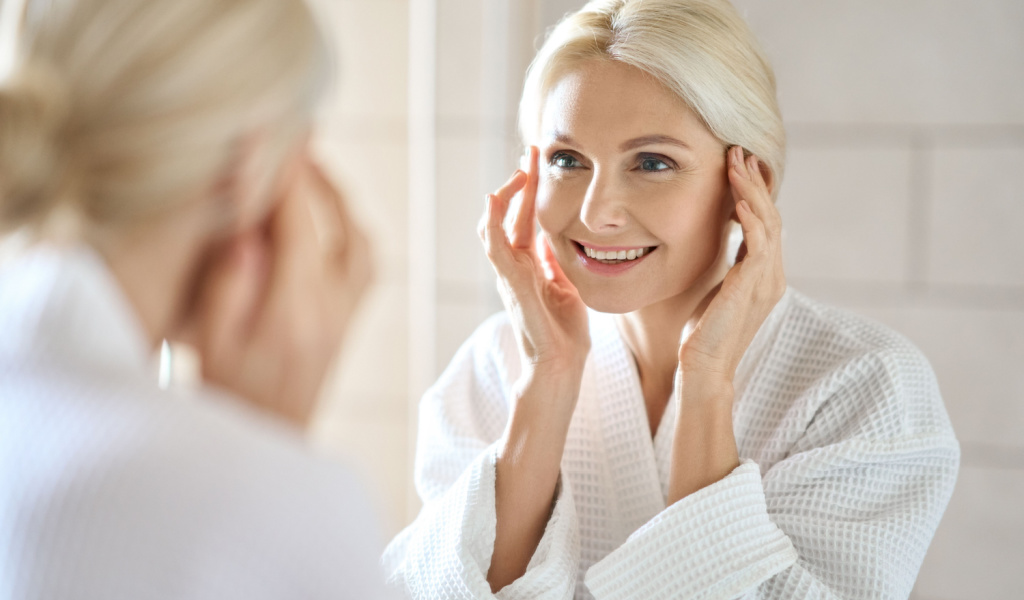You may be spending a boatload of money on everything from cosmetics, creams, visits to the salon – but alas, you’re still watching your skin age in front of your eyes. It may be comforting to note you don’t have to do all of that to make your skin look younger – you just need to be smart about it.
Don’t take it from me, it’s the experts that say so! They say that making your skin look better isn’t all that complicated. Making a few changes to your everyday regimen can make a world of a difference and make it look smooth and glowing. Here are some basic tips to supercharge your daily skin routine:

A Daily Dose of Antioxidants is Key
Just like you wouldn’t head out of the house without your bulkiest sweater in the middle of winter, you have to be careful about protecting your skin from outside elements as well. Harmful UV rays from the sun and pollution are two of the biggest things to worry about and they last year-round! This means your skin is left vulnerable year-round too.
Antioxidants are the protective layer that will help you protect your skin. UV rays and pollution create free radicals, which are little molecules that can penetrate your skin and wreak havoc – causing everything from wrinkles and brown spots to skin cancer! Antioxidants are a simple solution to prevent free radicals from going anywhere near your skin. So, make sure to put on some moisturizer or serum that is high in antioxidants every morning.
Francesca Fusco, M.D., a New York City dermatologist and an associate member of the American Academy of Dermatology suggests choosing products with Vitamin E and C. “You want a formula that has a mix of oil-soluble antioxidants such as vitamin E to help protect skin cells’ outer membranes, and water-soluble antioxidants like green tea and vitamin C that absorb into cells,” explains New York City dermatologist Francesca Fusco, M.D., an associate member of the American Academy of Dermatology.
Stick to the Tried-and-Tested Age Fighters
Every day it seems like skincare brands are coming out with products that have new and increasingly outrageous ingredients from diamond dust to crushed pearls. But, don’t worry, you don’t have to start reaching into your retirement fund to get rid of wrinkles. In fact, dermatologists say you’d be better off sticking to the tried-and-tested age-fighters: retinol, peptides, and vitamins. Experts also stress that the formulation of such products dictates how well it works.
Fusco says that retinol is “the single best over-the-counter ingredient for treating and preventing wrinkles”. She recommends picking a serum or lotion that contains 0.25% at first and then switching to one with a higher percentage, because, as she says, “It takes time for most people’s skin to adjust to retinol, so begin with low strength. Use it every other night for the first few weeks, then up it to every night. If your skin tolerates the 0.25 concentration well after a few months, upgrade to a product with .5 or 1 percent.”
Jeannette Graf, M.D., is an assistant clinical professor of dermatology at Mount Sinai Medical Center in New York. She says that peptides are another fantastic collagen booster that helps your skin firm up. “With peptides, though, it’s all about the delivery system,” she says. “So, shop from big, well-known skin-care brands, because they do a lot of research and you’re more likely to get a good peptide blend from them.”
If you want to focus on specific areas such as dark spots or uneven skin tone, Graf suggests choosing a serum with L-ascorbic acid, which is considered the most efficacious version of Vitamin C. She says this can work wonders!
Be Smart About SPF
Ask any dermatologist on the planet and they’ll go on and on about how important it is to wear sunscreen every single day. However, there are still some things to consider when picking sunscreen to maximize protection.
First and foremost, you should know that it’s alright to use an SPF 15 moisturizer instead of SPF 30 in colder months – as long as the label says it’s broad-spectrum. “It’s true that UVB rays, which are the ones that cause a sunburn, are not as strong in winter, but the UVA rays that reach deep into skin stay constant all year, and only broad-spectrum sunscreens guard against those,” explains Graf.
She also stresses the importance of applying SPF down your neck, on the back of your hands, and the tops of your ears because those are areas that have a high incidence of being affected by skin cancer.
If you spend a lot of time driving, especially in the morning hours, experts suggest keeping a stash of powder sunscreen in your dashboard at all times, and dabbing some on, especially on the side of your face and neck adjacent to the window. This is because studies show that while windshields block out nearly all UVA rays, most side windows offer far less protection. It’s better to be safe than sorry, so take 10 seconds to dab on some SPF powder before taking the wheel.
Exfoliate, But Not Too Much
Once upon a time, exfoliation was held up as the end-all-be-all for making you look younger as it helps trigger collagen production. However, experts then discovered that excessive exfoliation can, in fact, cause a host of skin problems.
“There’s an optimal pH level for skin that allows it to function properly,” says Graf. “When you exfoliate too often, you throw off that pH balance, making skin more susceptible to environmental irritants and more sensitive to certain ingredients.”
This doesn’t mean you should give up on exfoliating entirely. However, dermatologists suggest sticking to one or two times a week. They recommend using a glycolic or lactic acid at-home peel. This would prevent any potential damage that could be caused by overdoing it with a scrub.
Try Not to Stress So Much
Yeah, it seems to be a bit much to ask, especially in this day and age – but, whatever form of relaxation you can manage to get will show up on your face.
“When you’re stressed, your cortisol levels spike; this is associated with reducing skin’s collagen production and speeding up the breakdown of existing collagen, leading to spots, wrinkles, and sagging,” says Arielle N.B. Kauvar, M.D., a clinical professor of dermatology at New York University School of Medicine.
To make matters worse, the body slows down the production of the hormone that balances cortisol as we get older. So, if you’re past 50 years old or are constantly stressed, Graf suggests asking your doctor if you can take a DHEA supplement. Otherwise, do whatever you can do to relax and give yourself a mood boost – that’ll be good for your soul and your skin!



